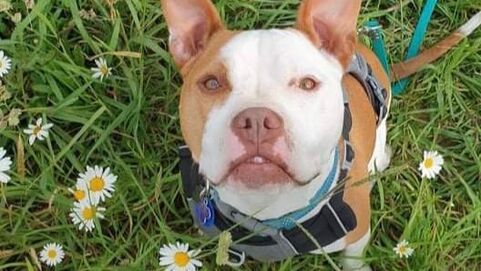|
As humans, we love to know what’s happening next. Planners, watches, appointments, and routine - the world wouldn’t run smoothly without people being on the same page and knowing what to do in a certain situation. I know how chaotic my week feels if I haven’t put up my weekly meetings and places to be.
Then we all know how it feels when our routine is interrupted. The chaos that ensues if something runs over the allotted time, or if we double book - and what about when something even more drastic occurs? Moving house, or changing jobs… the stress we feel as we adjust to new circumstances can be extremely disruptive. What’s to say that our dogs are any different? They’re not. In fact, we see many behaviour issues arise when our dogs are not sure what is going to happen next in any given moment, and it creates a stress in them that means they ‘act out’. For example, let’s look at the fact that many dogs do not like children - the most obvious reason for this discomfort is rather obvious once you realise. Kids are unpredictable. They move in ways that many dogs are not familiar with. They will run to get from one end of the room after sitting still for half a second - or fall over and immediately make the loudest noise they can muster. To expand on that unpredictability, many dogs who have stranger danger actually settle more if a new guest is seated. Why? Because not only is the person smaller and less intimidating that way, but they actually are stationed and have more patterned behaviour. The dog finds comfort in seeing that this new person is not lurking around their things, not following them around to touch them etc. So how does this relate to routine? Well, I have a nervous dog, and can speak from experience that knowing what to do in certain situations makes my dog, Charlie, feel more secure and safe. Routine gives Charlie understanding about how a day will pan out, and we have a few protocols in place for if something out of the norm occurs. Even now, as I am writing this, Charlie has heard the neighbours come home, and she is alert barking while heading to her crate. We have practised enough times that stressor = crate = something yummy + creating space, so that pattern and the good things paired with it gives her a plan for when she isn’t feeling so sure. Okay, so she barked a little, but she settled extremely quickly. It helps me out, because her rushing to the door and barking her head off and not being able to settle means I wouldn’t have been able to keep sharing the awesomeness of having predictable patterns in your day to day. Another thing we do is, I know when I have guests turning up (I get them to text me beforehand), and we always go out into the street to meet them. I have a sentence, ‘who’s coming to visit?!’ and every time I say that, Charlie is wiggling her little bottom before she even meets the guest. This is because, every time we go out to the street, and I ask the question, she has reunited with a human she knows, trusts, and gets amazing cuddles from. So she doesn’t worry that it will be someone who she doesn’t know. Additionally, the fright that can happen if someone just pops up at the front door means everyone: the dog, the visitor, and myself, gets a shock because I cannot actually explain to Charlie beforehand that a person coming to the front door is someone she knows, and she is likely to lose her absolute mind by barking at them. This plan is our handy (and quieter) alternative! Think of it in terms of going to a restaurant. If you turned up, where no one helped you find a table, where there was no menu and you were told to order whatever you wanted, you would probably feel pretty uneasy. Are you going to try and order something exotic? Or is it a dessert only location? How do they have enough ingredients in the kitchen to accommodate? The questions, and confusion, would continue - and if it were me, it would fill me with such a sense of dread I would probably just leave. Knowing what to do in a given circumstance brings confidence. If you know the exit strategy in a fire, when an emergency happens, you’re less likely to panic. If you understand that a guest coming to the door means you go into your crate, it provides security. If your dog doesn’t have a plan or an understanding of a situation, they are likely going to act in whatever way makes them feel safe in that moment, and because they are a dog, it could be anything in the fight, flight or freeze categories. Creating protocols that provide predictability takes a little bit of time to start off with, but in the long run, creates a kind of peace that both you and your dog will appreciate. Besides, once it’s a habit, you may end up being the one who likes the plans just as much! Authored by Sarah Endres Dog Trainer and Behaviour Advisor
0 Comments
Leave a Reply. |
AuthorsArticles created by the team at Allsorts Dog Training, Bay of Plenty, New Zealand Our Library
All
|


 RSS Feed
RSS Feed